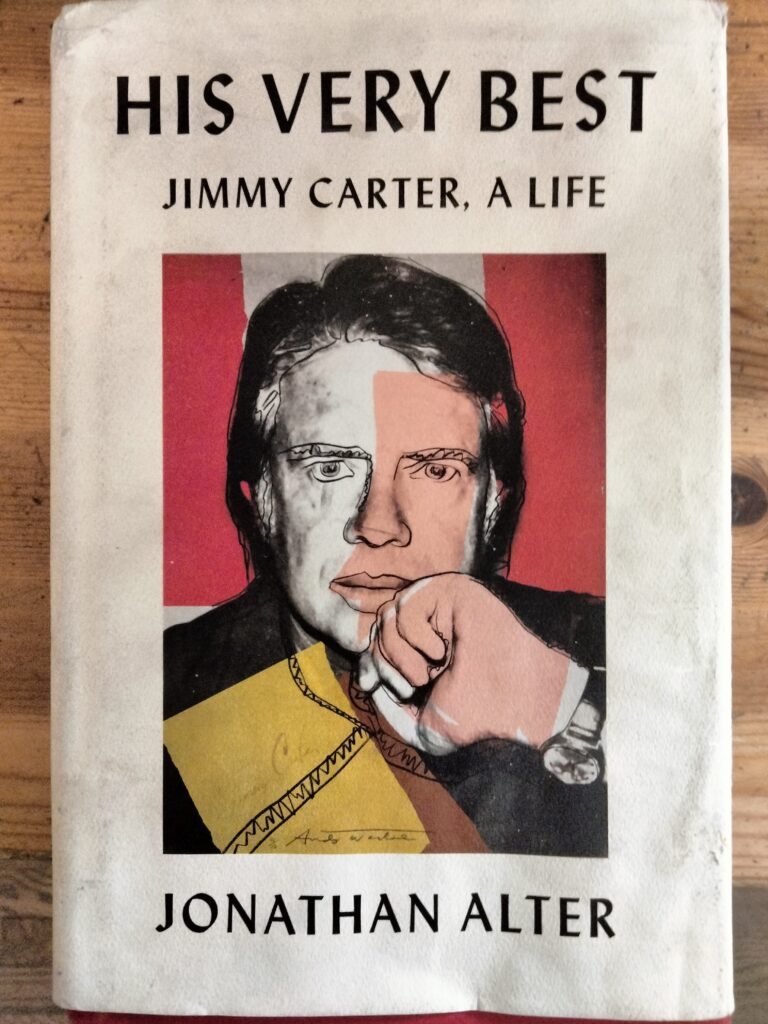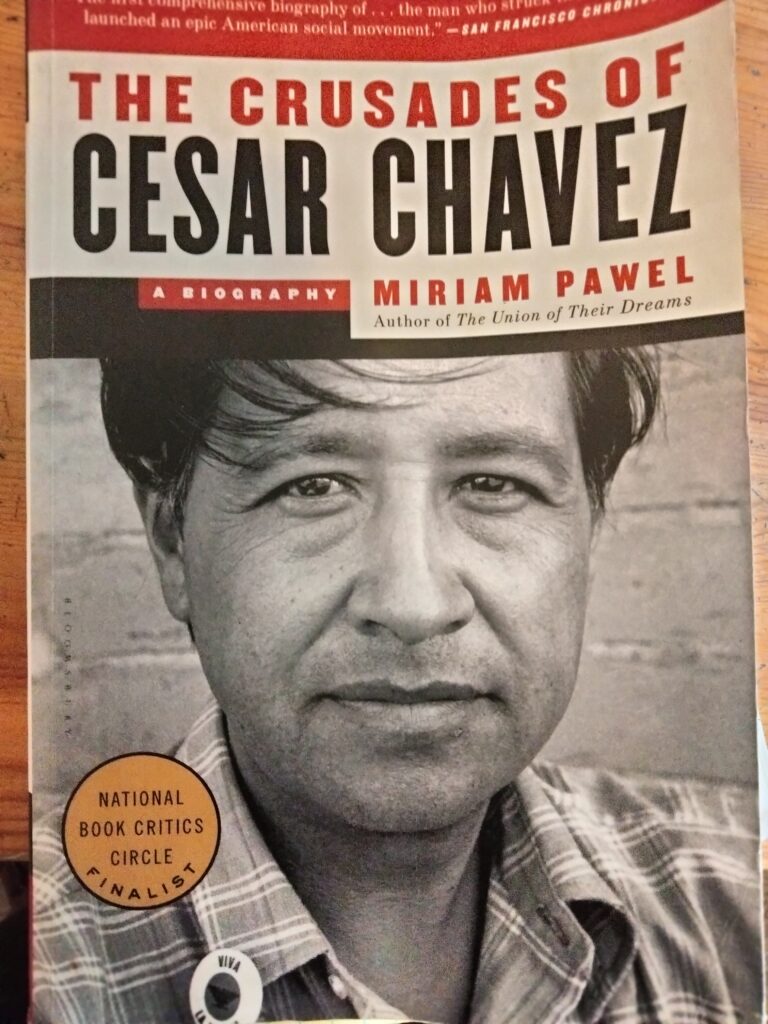Popular History Books are Being Marred by (Progressive) Ideology

As recently as a decade ago, the best popular history books carried little if any ideological baggage.
A reader could expect the author to serve as both a play-by-play announcer and color analyst: liberals, centrists, and conservatives alike would come under fire for sloppy play, indifference, or outright violations.

Take a book like Nicolas Lemann’s The Promised Land: The Great Black Migration and How It Changed America (1991).
The book was so fair-minded that conservative columnist George Will described Mr. Lemann as “America’s best writer about America’s most vexing problem.” Mr. Will was right. The book criticized liberals for failing to insist on high standards for screening candidates for public housing and noted that the decline of the African-American nuclear family was linked to the inability of many ghetto residents to move to the middle class. At the same time, Mr. Lemann called for the federal government to jumpstart a public works program so ghetto residents could move out.

Consider, too, David Talbot’s Season of the Witch: Enchantment, Terror, and Deliverance in the City of Love (2012).
Mr. Talbot may be best known as the founder of Salon, a progressive online magazine. Yet his book played it straight. It noted San Francisco Juvenile Court Judge Raymond J. O’Connor helped discredit the city’s Irish-Catholic leadership by throwing a twelve-year-old boy in jail for purse snatching and any other young miscreant.
It also reported corruption in the administration of incoming liberal Mayor George Moscone: deputy district attorney Tim Stoen, who also served as attorney for Peoples Temple leader Jim Jones, oversaw the commission investigating alleged voter fraud in the city’s 1975 mayoral election, the fraud caused by none other than Jim Jones.
Whatever faults the books had, they were not ideological.
That’s the way it’s supposed to be.
By definition, popular histories ought to appeal to ordinary book buyers and -readers rather than for specialists. And the best among them were not meant for political activists, either.
Even if authors adhere to an ideology, they should be self-conscious about their bias. They should follow the lead of former Washington Monthly editor Charles Peters, who died on Thanksgiving. “Charlie,” as he was universally known, popularized the idea that young, liberal-leaning journalists should “play Notre Dame,” a perennial football powerhouse. They should state and wrestle with the best arguments of “the other side,” usually conservatives. He was not one for insular thinking.
Sadly, many popular historians no longer practice or uphold either standard.
They are doing more than writing gloom-and-doom, one-sided tweets and singing from the same chorus in their television appearances. Their books are being weighed down by ideology, especially progressivism, the political outlook of many historians. The books should almost come with a disclaimer.

Take Jonathan Alter’s His Very Best: Jimmy Carter, A Life (2020), which one reviewer called the best biography of the 39th president.
Unless I missed something, Mr. Alter, a man of the left, says nary a kind word about conservatives; they are portrayed uniformly as craven, heartless, and benighted. A fair-minded writer would have acknowledged that some Soviet officials and neutral observers believe that President Reagan’s military-arms buildup helped cause the Soviet Union to collapse a decade after Mr. Carter left office.
In addition, His Very Best has little to offer social conservatives.
Despite being 670 pages, the book devotes no more than a paragraph to the topic of abortion. It makes no mention that as president for four years (1977 to 1981), Mr. Carter supported the Hyde Amendment, the federal rider to appropriations bills that barred the use of Medicaid funds for abortion except in limited circumstances. It notes Mr. Carter told Pope John Paul II in 1979 that he struggled “as a politician sworn to uphold our laws to live with the concept of permissive abortion.” Yet the book fails to ask why, given his moral difficulty, Mr. Carter did not do more to save and protect unborn human life.

Another book that suffers under the weight of the author’s progressivism is Miriam Pawel’s The Crusades of Cesar Chavez: A Biography.
Like His Very Best, Crusades does not come to grips fully with the subject’s Christianity.
Cesar Chavez, the founder of the United Farm Workers, was more than an economic progressive. He was an observant if imperfect Catholic.
He undertook weeks-long fasts, had his staff help organize late-night Masses and vigils attended by thousands when he was in jail, and carried banners of the Virgin of Guadalupe at marches. As late as the mid-1970s, Mr. Chavez wanted to found a religious order called Los Menos based on solidarity among the poor. As one Catholic conservative noted, Mr. Chavez was “the last Catholic in America” to achieve the cultural and political synthesis of developing “an authentic Catholic politics in a pluralist society.”
To be sure, Ms. Pawel duly records Mr. Chavez’s Catholic activities. Yet a reader would be left in the dark about the scope of Mr. Chavez’s achievement. Instead, Ms. Pawel describes his rise and fall as a labor leader.
To be sure, not every progressive or liberal popular historian tells his or her story through ideologically tinted glasses.
In Mayday 1971, Lawrence Roberts showed fairness to one of the book’s central characters, Jerry Wilson, the D.C. police chief who oversaw the agency’s response to the massive antiwar blockades in early May 1971. Wilson was not portrayed as a one-sided figure he could have been in less skilled hands. Instead, he was presented as a decent man with an impossible job who committed mistakes.
And Mr. Alter and Ms. Pawel are hardly as ideologically compromised as, say, Dinesh D’Souza or Tucker Carlson, two men who once were conservative intellectual stalwarts but whose most notable quality has become intellectual hackery. I recommend readers read His Very Best and The Crusades of Cesar Chavez. They are informative, well-written, and relevant.
Yet the trend of progressive popular historians being insular is disturbing and should be resisted.
-30-

0 Comments